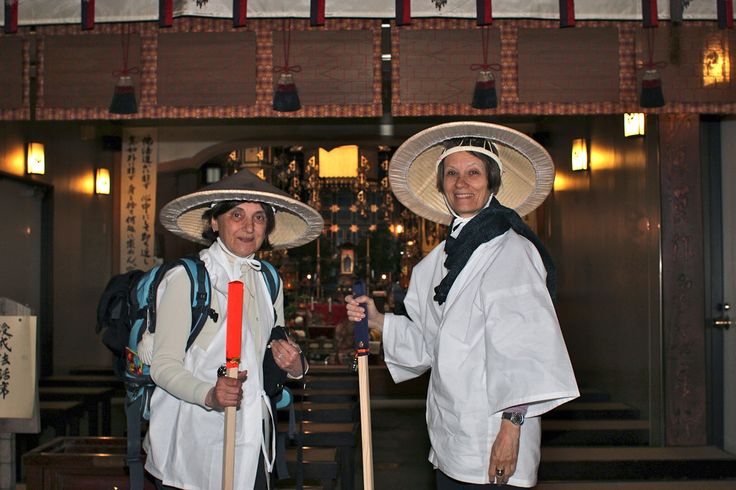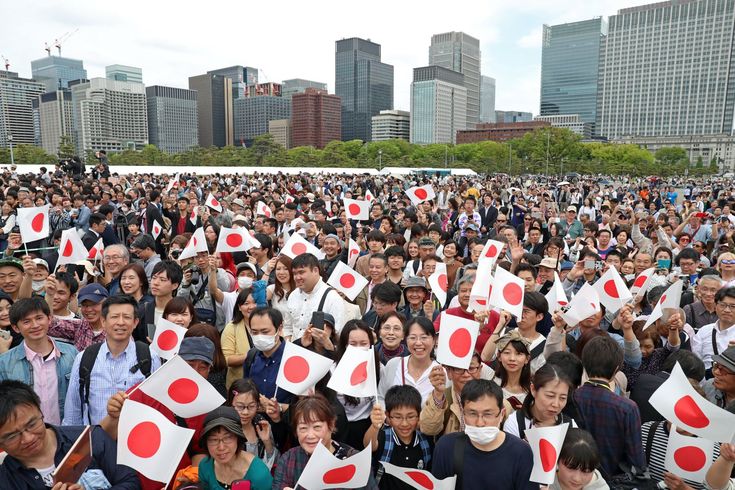Japan has long held a magnetic allure for people across the globe. It’s a country that exists as both a tangible place and a powerful idea—a land of serene temples and neon-drenched cityscapes, of ancient traditions and futuristic technology. Millions are drawn to its shores by a promise of safety, convenience, unparalleled cuisine, and a culture steeped in a unique aesthetic. They arrive on long-term visas, filled with dreams of building a life, only to find that the reality of putting down roots is far more complex than the fantasy. While many foreigners come, only a fraction decide to stay permanently. The rest, after a few years, pack their bags and leave.
A recent series of street interviews captured the poignant stories of several foreigners on the verge of their departure, offering a raw, unfiltered look into this phenomenon. Their reasons, ranging from economic hardship and bureaucratic nightmares to social isolation and personal introspection, paint a comprehensive picture of the challenges that lead to the difficult decision to say sayonara to Japan. By weaving their personal testimonies with broader societal and economic trends, we can begin to understand the complex tapestry of reasons behind this exodus.
The Economic Wall: Stagnant Wages and the “English Teacher” Trap

One of the most pressing and frequently cited reasons for leaving Japan is the stark economic reality. For many, the dream of a prosperous life in a first-world nation collides with a wall of stagnant wages, a weak yen, and a rigid career ladder that offers little room for advancement, especially for non-Japanese.
Thomas, an American from Louisiana who had lived in Japan on and off for nearly four years, articulated this frustration with painful clarity. When asked why he was leaving, his answer was immediate and direct: “As far as like other than teaching English and being in poverty, I just don’t really think it’s worth it.” His words cut through the polite veneer often associated with life in Japan, exposing a harsh truth for many expatriates. The most accessible job for native English speakers is teaching, but this role, while a common entry point, often becomes a professional dead-end with a salary that has barely budged in decades. Compounded by the recent dramatic decline in the value of the yen, what was once a comfortable living has become a struggle for many.
Thomas’s experience highlights a critical issue: the “glass ceiling” for foreigners. Moving beyond English teaching into other professional sectors is notoriously difficult without native-level fluency in Japanese, including the complex business-specific keigo (honorific language), and a deep understanding of Japan’s unique corporate culture. Even for those who achieve this, they often find themselves on a different, slower track than their Japanese counterparts.
This economic stagnation is a national issue, not just one affecting foreigners. Japan’s wages have remained stubbornly flat for over 30 years, a phenomenon that perplexes economists and frustrates its populace. Jing, a woman from China who has lived in Japan for 11 years, echoed this sentiment through the experience of her friends. “I have some American friends that work in Japan and they’ve said, ‘This country doesn’t have a future anymore. The population is low and aging out. And wages haven’t changed in a very long time.'” This observation is backed by data. While other developed nations have seen significant wage growth, Japan has lagged, making it a less attractive long-term destination for ambitious professionals.
The solution for Thomas was to look elsewhere. He planned to move to China, where the opportunities for English teachers are more lucrative. “How is the salary in China for English teaching compared to Japan?” the interviewer asked. “Oh, it’s much better,” he replied, explaining that while the cost of living is cheaper in China, the salary is significantly higher. “You’ll make like maybe like $3,000 a month in China, but that is a ton of money,” he noted, a stark contrast to the financial “poverty” he felt while teaching in Japan.
The Immigration Labyrinth: The Perpetual Guest

If economic barriers weren’t enough, the path to securing a stable, long-term visa can be a bewildering and often heartbreaking journey. Japan’s immigration system, while efficient in processing tourists, can be notoriously rigid, opaque, and unforgiving for those seeking to transition from temporary status to a more permanent one.
The story of Mike from Greece is a chilling case study in this bureaucratic struggle. He came to Japan as a student, fell in love with the country, and wanted to build his life there. He did everything right: he studied Japanese, reaching a high level of proficiency (N2 certification), and secured not one, but two job offers from companies willing to sponsor his work visa. Yet, his application was rejected.
“I was kind of forced to leave Japan,” he explained, the disappointment still evident in his voice. “I didn’t really want to.” After his student visa was set to expire, the immigration office gave him a stark ultimatum. “They gave me, like, two months to leave the country.” When he went back to the immigration office with a new job offer from a company eager to sponsor him, the answer was still no. The reason? His job title, “Spa Assistant,” didn’t fit neatly into the predefined categories for work visas, like “Specialist in Humanities” or “Engineer.”
The advice he received from the immigration officer was both absurd and revealing: “Basically, they told me, you know what, you have two months, get married.” The suggestion that marriage was a more viable path to residency than being a qualified, language-proficient professional with multiple job offers speaks volumes about the system’s inflexibility. For Mike, and many others, this experience shatters the illusion of being a welcome member of society. It reinforces the idea that, no matter how much you contribute or integrate, you are ultimately a guest whose stay is subject to arbitrary rules.
This feeling of precarity is a major deterrent. The constant anxiety over visa renewals, the fear that a job change could invalidate one’s status, and the difficulty in transitioning to permanent residency or citizenship makes it hard to plan for the future. For those looking to buy a home, start a family, or build a long-term career, this lack of stability is a powerful reason to seek a new life in a country with a more straightforward and welcoming immigration policy.
The Social Wall: A Perpetual Outsider

Beyond the practical concerns of money and visas lies a more subtle, yet profoundly impactful, challenge: social integration. Japan is a famously homogeneous society, and while the people are overwhelmingly polite and kind on the surface, breaking through to a deeper level of connection can be incredibly difficult for foreigners. The feeling of being a gaijin—an outsider—can persist for years, even a lifetime.
This was powerfully expressed by Kaori, a woman of half-Japanese, half-Colombian descent who was born and raised in Colombia but had lived in Japan for seven years. Despite her heritage and fluency, she felt a persistent sense of otherness. “As a half-Japanese person, I feel always I will be in a different category,” she shared. “Like, they will not consider me completely Japanese.” This experience, common among hafu (half-Japanese individuals), reveals the rigid in-group/out-group dynamic that defines much of Japanese society. If even those with Japanese blood are not fully accepted, the challenge for those without is even greater.
This sense of being an outsider can also manifest in more overt and hurtful ways. Jing recounted a painful memory from her time as a student. After finishing a bartending shift, a Japanese person came directly up to her and said, “You’re Chinese, go back to China. This is Japan.” While she was quick to note that this was the act of a minority and that most Japanese people are very kind, the sting of such an encounter lingers. It’s a harsh reminder that your presence is seen by some as conditional and unwelcome.
This social distance is woven into the cultural fabric. The concepts of honne (one’s true feelings) and tatemae (the public facade) can make interactions feel superficial. Foreigners often find it difficult to form the kind of deep, unguarded friendships they are used to in their home countries, leading to a profound sense of loneliness.
The Pull of Home and the Search for a Better Future
Not all departures are driven by negative experiences. For many, leaving Japan is a natural part of their life’s journey. Personal circumstances, family ties, and the simple desire for a different future play a significant role.
Kaori’s decision to return to Colombia was not a rejection of Japan but a rediscovery of her other home. After spending seven years away, a trip back for Christmas made her realize what she was missing. “I was missing my family so much,” she said, “and a little bit of the Colombian culture, environment.” The warmth and openness of her Latin roots called to her, and she decided to close the Japan chapter of her life, at least for now.
Similarly, Nacho from Venezuela was in Japan on a three-month language course. His departure was pre-planned. “I’m going back to my country to start college,” he explained. For him, Japan was an enriching but temporary experience. Interestingly, despite his short stay, he too touched upon the difficulties of long-term life there, noting Japan’s reputation for an “extremely exploiting work culture.” He enjoyed the country immensely as a visitor but was hesitant about the prospect of living and working there permanently.
Jing’s story represents another common path. After 11 years, she is planning to move to the United States with her American husband. For her, it’s not about escaping Japan but about starting a new life with her family elsewhere. She wants to step out of her “comfort zone” and “challenge myself to try some other possibilities.” While she acknowledges the very real problems of an aging society and stagnant wages in Japan, she also sees similar issues in other countries and believes the key is how you choose to face them. Her perspective is one of mature transition, not of bitter retreat.
Conclusion: A Land of Transience
The stories of Thomas, Mike, Kaori, Jing, and Nacho reveal a paradox at the heart of the expatriate experience in Japan. It is a country that is easy to love but difficult to belong to. The very qualities that make it an incredible place to visit—its order, its politeness, its unique cultural identity—can also create invisible walls for those who wish to make it their permanent home.
The decision to leave is rarely simple. It’s a complex calculation of economic opportunity, bureaucratic feasibility, social connection, and personal aspirations. For some, the economic equation no longer adds up. For others, the endless struggle with immigration becomes too much to bear. For many, a persistent feeling of being an outsider, coupled with the powerful pull of family and home, eventually tips the scales.
Japan is facing a demographic crisis, with a rapidly aging population and a shrinking workforce. In theory, attracting and retaining skilled foreign talent should be a national priority. Yet, the experiences of those who leave suggest that the country has not yet reconciled its need for immigrants with its deep-seated cultural and systemic reluctance to fully embrace them. Until it does, Japan may remain what it has been for so many: a beautiful, fascinating, and unforgettable chapter in their lives, but not the final destination.

